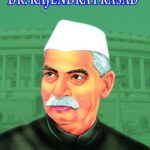The Non-Cooperation Movement: A Powerful Chapter in India’s Freedom Struggle
Introduction
The Non-Cooperation Movement was one of the most significant events in India’s fight for independence from British rule. Led by Mahatma Gandhi, it began in 1920 and aimed to resist British authority peacefully by refusing to cooperate with colonial institutions. This movement had a profound impact on Indian society, influencing daily life and fostering a sense of unity and nationalism among people.
History of the Non-Cooperation Movement
The movement was launched in response to several oppressive policies and events imposed by the British, including the Rowlatt Act of 1919, the Jallianwala Bagh massacre, and the injustices related to the Khilafat Movement. Mahatma Gandhi urged Indians to withdraw from British institutions such as schools, courts, and government jobs to cripple the colonial administration.
Despite its peaceful intentions, the movement saw widespread protests, strikes, and boycotts. It gained immense popularity, drawing support from people across different regions, castes, and economic backgrounds.
Key Events of the Non-Cooperation Movement
- Launch of the Movement (1920): Gandhi formally introduced the movement in response to British atrocities.
- Boycott of British Goods: Indians stopped buying British-made goods and promoted Swadeshi products.
- Resignation from Government Jobs: Several officials and workers resigned from British-controlled institutions.
- Closure of Schools and Colleges: Educational institutions run by the British saw a massive drop in enrollments.
- Chauri Chaura Incident (1922): A violent clash between police and protesters led to Gandhi suspending the movement, emphasizing the importance of non-violence.
Impact on Daily Life
The Non-Cooperation Movement brought significant changes to everyday life in India:
- Rise of Khadi: The movement encouraged Indians to wear hand-spun khadi instead of British textiles.
- Economic Self-Reliance: Indian industries and handicrafts received a boost as people boycotted foreign goods.
- Political Awakening: Millions of Indians became politically conscious and began participating in the freedom struggle.
- Social Reforms: The movement helped break social barriers, bringing together people from different backgrounds.
Important Facts About the Non-Cooperation Movement
- It was the first mass movement led by Gandhi.
- The movement emphasized the principles of Ahimsa (non-violence) and Satyagraha (truth-force).
- The movement saw participation from influential leaders like Jawaharlal Nehru, Sardar Patel, and Subhas Chandra Bose.
- Women played a crucial role in protests and boycotts.
Significance of the Non-Cooperation Movement
The movement was a turning point in India’s freedom struggle as it:
- Demonstrated the power of mass civil disobedience.
- Weakened the British administration’s economic grip.
- United Indians under a common cause.
- Laid the foundation for future movements like the Civil Disobedience Movement and Quit India Movement.
Observance and Legacy
The Non-Cooperation Movement is commemorated in India as an important part of the country’s history. Schools, colleges, and organizations conduct events to educate students and citizens about its impact and lessons. It serves as a reminder of the power of unity, determination, and peaceful resistance.
FAQs About the Non-Cooperation Movement
Q: Why did Gandhi start the Non-Cooperation Movement?
A: Gandhi launched it to oppose British policies and promote self-reliance through non-violent resistance.
Q: What led to the suspension of the movement?
A: The violent incident at Chauri Chaura, where police officers were killed by protesters, led Gandhi to suspend the movement.
Q: How did it affect British rule in India?
A: The movement significantly disrupted British governance and economic control in India.
Q: What lessons can we learn from the movement?
A: The importance of unity, non-violence, and self-reliance in achieving collective goals.
Conclusion
The Non-Cooperation Movement remains one of the most impactful movements in India’s history, symbolizing courage and resilience. It taught the world how non-violent resistance could bring about significant social and political changes. Today, its legacy continues to inspire movements for justice and equality worldwide.
Important Points to Remember
- The movement started in 1920 and ended in 1922.
- It was primarily led by Mahatma Gandhi.
- Non-violence and civil disobedience were its key strategies.
- The movement’s suspension highlighted the importance of discipline in protests.
By reflecting on the Non-Cooperation Movement, we can appreciate the sacrifices made by our ancestors and carry forward the spirit of peaceful resistance in modern times.










